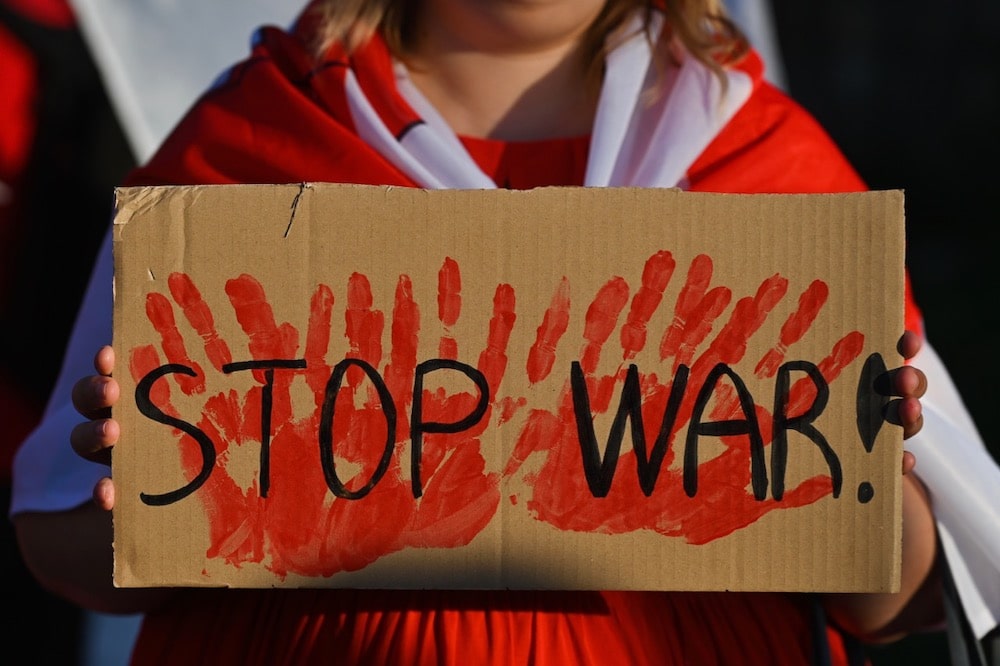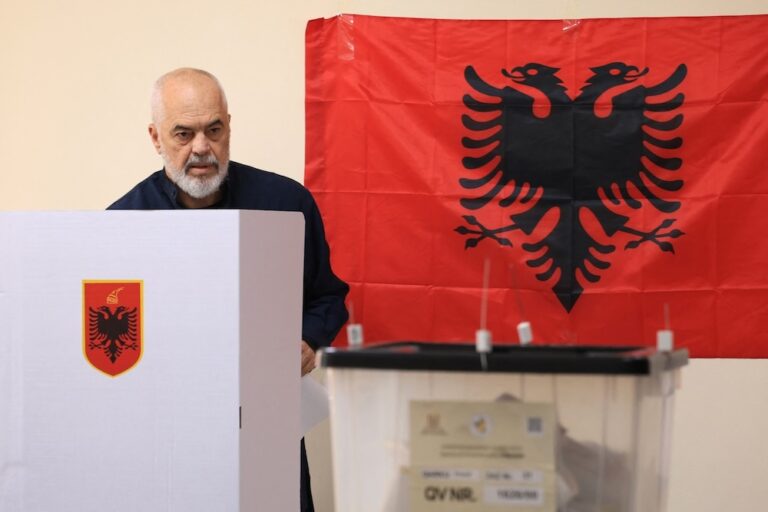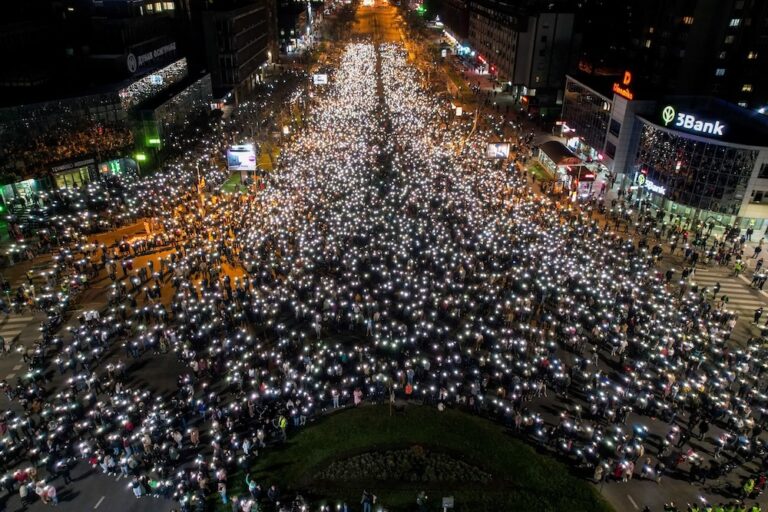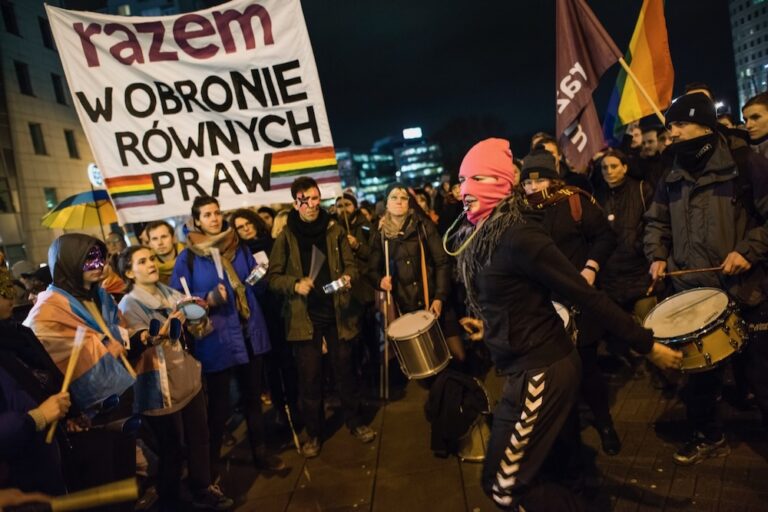August 2022 in Europe and Central Asia: A free expression round up produced by IFEX's Regional Editor Cathal Sheerin, based on IFEX member reports and news from the region.
August marked two years of unprecedented repression in Belarus and six months since Russia began its war against Ukraine. In Turkey, nationalists attacked critical journalists and the government announced the establishment of a ‘Centre for Combatting Disinformation’.
A “purposefully hostile environment”
In Belarus, August saw the second anniversary of the disputed presidential election that returned Aleksandr Lukashenka to office. That result triggered a massive wave of popular protest across the country and an unprecedented crackdown on civic space by the authorities in response.
IFEX members marked the occasion with statements summarising the current, dire situation for independent media and human rights defenders in Belarus, and with calls for action from the international community.
The Belarusian Association of Journalists (BAJ) – liquidated by court order one year ago in Lukashenka’s “purge” of civil society – highlighted the several hundred journalists detained during the last two years, the closure of press outlets, and the increasing use of the ‘extremist’ label to undermine media. BAJ urged international colleagues to “appeal to your governments to use their political influence on the Belarusian authorities to restore freedom of expression in Belarus”.
The European Federation of Journalists (EFJ) called for further international efforts to pressure the Lukashenka government to “release journalists, trade unionists and all those who are in prison simply for peacefully exercising their right to freedom of expression”. There were also calls for greater international pressure on the government and declarations of solidarity with civil society from ARTICLE 19, the International Press Institute and PEN International.
Reporters Without Borders called on the international community to “provide concrete support” to independent Belarusian media and published interviews with journalists who had fled to exile from Belarus. PEN America urged the US to do more to address Lukashenka’s rights abuses, and called for a “consolidated effort to counter Belarusian tactics that involve internet censorship, prolonged detention in terrible conditions, and extensive torture”.
Many statements highlighted the Lukashenka government’s support for Russia’s attack on Ukraine (which included allowing part of the invasion to take place from inside Belarusian territory) and the detrimental effect that this has had on the situation of the Belarusian people. “The initial invasion of Ukraine has gravely undermined much of the world’s support for Belarus,” PEN America said. “More than ever, it is crucial to distinguish those who reside in Belarus from the cruel actions of Lukashenka’s Putin-backed regime.”
Protests by Belarusians against Russia’s war in Ukraine have resulted in the arrest and imprisonment of several rights defenders and activists. The Belarusian human rights organisation Viasna (which currently lists over 1,300 political prisoners in Belarus) has registered numerous criminal cases based on “anti-war and anti-Russian statements on social networks, dissemination of information about the movement of Russian troops on the territory of Belarus, and attempts to prevent the movement of military equipment on the railroad tracks”.
The case of student Danuta Peradnia is representative. She was sentenced to 6.5 years in prison last month (and placed on a list of ‘terrorists’) for allegedly reposting in a social media chat a text that criticised Putin and Lukashenka for the war.
August also saw developments in the cases of numerous persecuted journalists, including: BAJ board member Iryna Slaunikava, who was sentenced to five years in prison on charges of running an ‘extremist’ organisation; journalist Tatsiana Matsveyeva, who was sentenced to serve eight days’ detention for a Facebook post; and well-known editor Aksana Kolb, who announced this month that she had fled Belarus following a 30-month “open prison” sentence that was handed to her in June 2022.
The most recent report by the UN Special Rapporteur on the situation of human rights in Belarus focuses on the situation of Belarusian citizens such as Kolb who have fled their country, and who cannot return home because of the “purposefully hostile environment” that makes it unsafe for them to do so.
The report (in which BAJ’s work features prominently) calls on the Belarusian government to put an end to the policies and practices that force citizens into exile and makes several recommendations, including: ending “the policy of eradication of civil society”; opening the information space and ending the persecution of the media; immediately and unconditionally freeing all those imprisoned for practising their civil and political rights; bringing to justice state officials involved in human rights abuses; and ending the persecution of Belarusian nationals in exile.
“The bulletproof vest I was given has saved my life”
In August, IFEX members also marked six months since Russia’s invasion of Ukraine.
The Institute of Mass Information (IMI) provided another, comprehensive report on Russia’s attacks on media in Ukraine since the beginning of the conflict. According to its report, this figure now stands at 435. The number of journalists killed has increased to 37 (6 of whom were women); of these, eight were killed in the course of their reporting (six men, two women). IMI has also recorded 65 death threats directed at journalists as a result of the invasion and the closure of 215 media outlets.
Reporters Without Borders (RSF) published an overview of the practical support that they’ve been providing (in collaboration with IMI) to journalists reporting on the conflict. By the beginning of August, RSF had given assistance – in the form of protective equipment, first aid kits, reporting equipment and psychological support services – to more than 600 journalists. The European Federation of Journalists (EFJ), which has also been providing essential aid to journalists operating in Ukraine, shared comments from several media workers who have been able to carry on working due to EFJ’s assistance, including Gleb Golovchenko of TAK TV, who said: “The bulletproof vest I was given has saved my life.”
Human Rights Watch marked the half-year of war by providing an excellent overview of how the Russian government has tried to strangle free discussion about the conflict. Entitled ‘What can get you in trouble for anti-war speech in Russia?’, the explainer is illustrated with several cases of individuals who have fallen foul of recent legislation criminalising the dissemination of disinformation about the armed forces. Examples include the artist and musician Aleksandra Skochilenko, who took part in a Feminist Anti-War Resistance campaign to replace shop price tags with anti-war messages: she was placed in pre-trial detention in April for her act of protest and was still there in August.
Others who were targeted for their anti-war protests this month were: journalist Marina Ovsiannikova, who was officially charged with “spreading false information” about the army and who faces up to ten years in prison if convicted; former Yekaterinburg Mayor Evgeny Roizman, who faces charges of “discrediting the armed forces” because of his criticism of the invasion; and the Journalists and Media Workers’ Union, which was hit with a large fine this month for “discrediting the Russian armed forces”, and which faces dissolution at a court hearing scheduled for 14 September.
The Russian authorities also continued to target foreign journalists in August, adding another 12 high-profile UK reporters and editors to a list of media workers banned from entering Russia.
Nationalism, disinformation and homophobia
The persecution of journalists in Turkey continues. With less than one year to go until parliamentary elections, ultra-nationalist politicians and their supporters are targeting their critics in the press in the forms of threats, smears, verbal abuse and physical attacks.
One such recent attack involved YouTube journalist Ebru Uzun Oruç and her cameraman (and partner) Barış Oruç. Following the release of a video report on the Nationalist Movement Party leader Devlet Bahçeli, the journalists were attacked in an Istanbul street by men armed with guns. Fortunately, both escaped unscathed. Two of the assailants were briefly detained by the police and then released.
The government’s announcement that it was establishing a ‘Centre for Combating Disinformation’ set the alarm bells ringing this month. Although it is not yet clear how the centre will function, its goal will be to “counter the systematic disinformation campaigns directed against Turkey”. It will likely present another threat to free expression in Turkey, complementing the recent ‘disinformation’ bill which threatens those who spread ‘false news’ online with three years in prison.
The pressure on LGBTQI+ people in Turkey is experienced particularly strongly during Pride events, where LGBTQI+ people’s rights to freedom of expression and freedom of assembly are frequently trampled on by the authorities. This month, Yasemin Smallens from Human Rights Watch published an interesting overview of how Turkey’s Pride month (June) showcased both governmental homophobia and LGBTQI+ resistance. Smallens points to at least 10 LGBTQI+ events that were banned during Pride, and over 530 arrests. Many of those arrested, she says, were kept “handcuffed, in hot vehicles without food or water for long periods. The majority of detainees were held overnight”. Smallens places the government’s anti-LGBTQI+ stance in the broader context of its assault on rights more generally, including its hostility towards Kurdish politicians and activists, human rights defenders, women’s rights groups and journalists.



